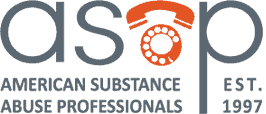A Rule by the Health and Human Services Department on 10/25/2019
Summary: The Department of Health and Human Services (“HHS” or “Department”) has established scientific and technical guidelines for the inclusion of oral fluid specimens in the Mandatory Guidelines for Federal Workplace Drug Testing Programs (Guidelines).
For Further Information Contact: Charles LoDico, M.S., F-ABFT, Division of Workplace Programs, Center for Substance Abuse Prevention (CSAP), SAMHSA, 5600 Fishers Lane, Room 16N03A, Rockville, MD 20857, telephone (240) 276-2600 or email at charles.lodico@samhsa.hhs.gov.
Supplementary Information: The Mandatory Guidelines for Federal Workplace Drug Testing Programs using Oral Fluid (OFMG) will allow federal executive branch agencies to collect and test an oral fluid specimen as part of their drug testing programs. In addition, some agencies, such as the Department of Transportation, are required to follow the Guidelines in developing drug testing programs for their regulated industries, whereas others, such as the Nuclear Regulatory Commission (NRC), use the Guidelines as part of the regulatory basis for their drug testing programs for their regulated industries. The OFMG establish standards and technical requirements for oral fluid collection devices, initial oral fluid drug test analytes and methods, confirmatory oral fluid drug test analytes and methods, processes for review by a Medical Review Officer (MRO), and requirements for federal agency actions. The OFMG provide flexibility for federal agency workplace drug testing programs to address testing needs and revise the requirement to collect only a urine specimen, which has existed since the Guidelines were first published in 1988. Since 1988, several products have appeared on the market making it easier for individuals to adulterate their urine specimens. The scientific basis for the use of oral fluid as an alternative specimen for drug testing has now been broadly established and the advances in the use of oral fluid in detecting drugs have made it possible for this alternative specimen to be used in federal programs with the same level of confidence that has been applied to the use of urine. For example, oral fluid collection devices and procedures have been developed that protect against biohazards, maintain the stability of analytes, and provide sufficient oral fluid for testing. Additionally, specimen volume is also much lower, saving time in collection and transport cost. Developments in analytical technologies have provided efficient and cost-effective methods with the analytical sensitivity and accuracy required for testing oral fluid specimens. Federal agencies, MROs, and regulated industries using the OFMG will continue to adhere to all other federal standards established for workplace drug testing programs. The OFMG provide the same scientific and forensic supportability of drug test results as the Mandatory Guidelines for Federal Workplace Drug Testing Programs using Urine (UrMG).



